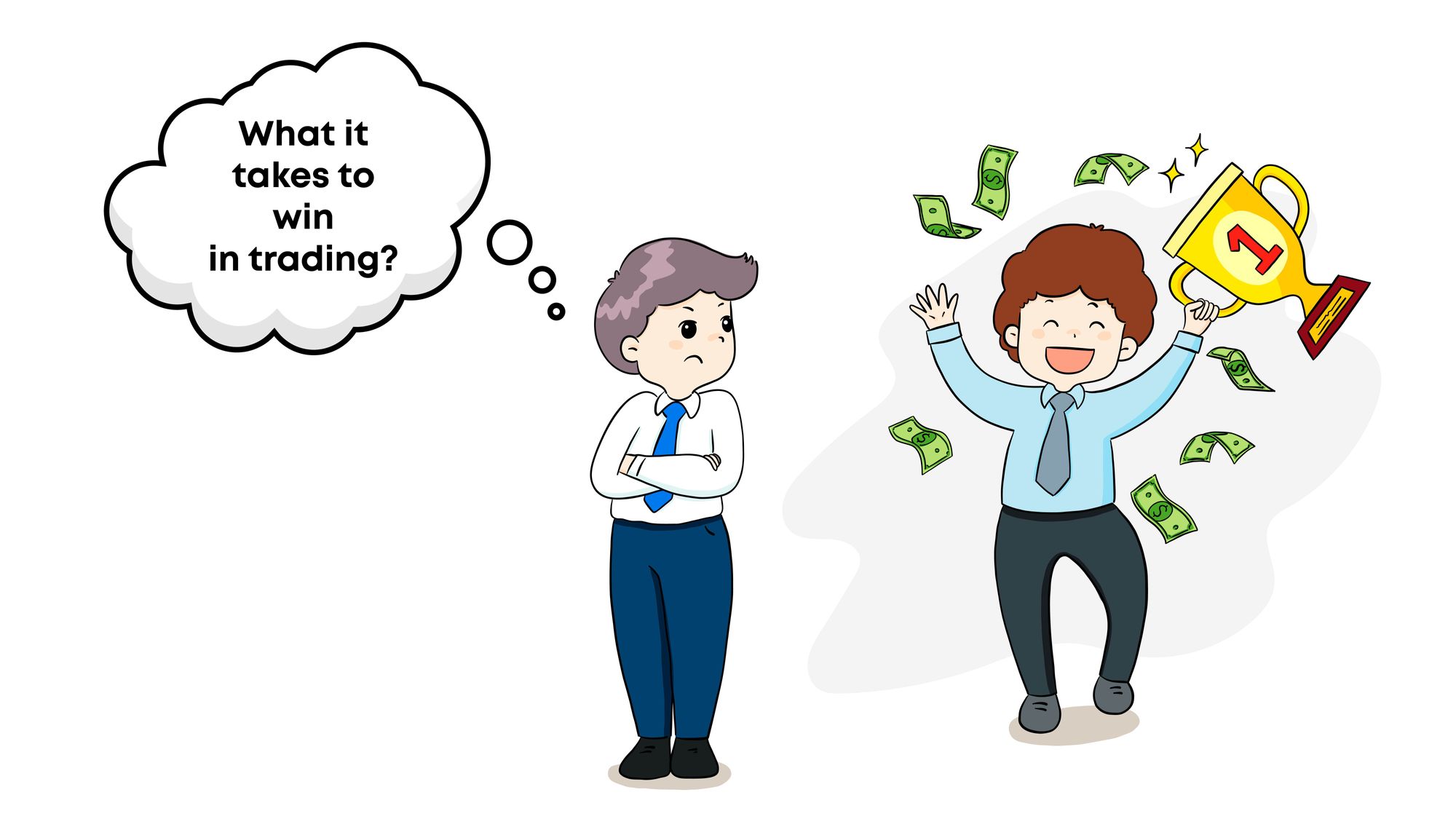What it takes to win in trading?

Trading is the most difficult way to make easy money, if you think trading the markets will unlock your dream of becoming rich and buying lavish cars please spill some water on your face and WAKE UP!
Making money in the long run is very tough in trading, we’ll try to understand what it takes to win in trading and also help you learn about the mistakes people make
Trading is 30% research and 70% risk/money management
While people give too much importance to one trade, the long term success in trading is a outcome of superior risk/money management. Research takes time and effort you have to scan through multiple charts & setups and constantly monitor the markets to spot opportunities. Our team of analysts does the research part for our users where they constantly track the markets and spot opportunities for users but that’s where our contribution stops. To consistently get outcomes for oneself users needs to master the art of risk/money management

Define a hard stop — money & time
Markets can remain irrational longer than you can remain solvent
– John Maynard Keynes
The most successful traders are those who quit trading when they realized that they were not good at it or that they did not enjoy it. They did not wait for huge losses to force them out of the market. Just like not everyone can be a professional athlete, musician, or entrepreneur, not everyone can be a successful trader. The stock market is a risky proposition, and you can potentially lose unlimited amounts of money if you are not good at trading. Therefore, it is important to define and stick to a sensible stop loss, an amount of money that you can afford to lose, and a time period that you will wait to turn profitable. This is especially important if you are a beginner.
Have a stop loss on every trade as well
Two basic rules when trading: (1) if you don’t bet, you can’t win. (2) if you lose all your chips, you can’t bet – Larry Hite
Jack Schwager is an author who has talked with millions of traders around the world shared some of the key insights he has learned from interviewing the best traders in the world. One of the most important pieces of advice he gave is to limit your losses on any trade to no more than 1% of your trading capital. This is because the larger your losses get, the more likely you are to act irrationally and make bad decisions.
For those who trade options, it is important to remember that placing a 1% stop is only possible if your option trades are never more than 2% to 3% of your trading capital. This is because options are inherently risky, and if you risk too much on a single trade, you could easily wipe out your entire account.
As Schwager puts it, buying naked options is like buying a lottery ticket. If you had one lakh rupees, how much of it would you spend on buying lottery tickets? The answer is probably not very much, because you know that the odds of winning are very slim. The same is true for buying naked options. The odds of making a big profit are very slim, so it is important to limit your risk by only risking a small percentage of your trading capital on each trade.
Leverage: A double edged sword
Money can’t be the goal; it has to be the process.
Leverage, including futures and options, involves trading with a larger amount of capital than what you possess. This practice can be extremely risky for inexperienced individuals. While it may create the illusion of achieving significant profits quickly when successful, the reality is that excessive leverage can result in complete financial ruin from a single unfavorable trade. Many former active traders who have ceased trading would likely attribute their decision to excessive use of leverage. If you do choose to utilize leverage, exercise caution and employ it judiciously, reserving it for situations where you possess a high level of confidence in the trade. Even then, it is crucial to implement a stop loss to mitigate potential losses.
Compulsive trading & bet sizing
Many times, no trade is the best trade.
Trading can be highly addictive, as many individuals enter trades simply because they find it more interesting or thrilling than other activities. It is crucial to avoid becoming a compulsive trader and take regular breaks when you feel that trading is dominating your life. If you find it challenging to completely stop trading, consider reducing your trading size to 1/10th when you recognize that you are trading for no substantial reason.
Moreover, adjusting the size of your trades based on the circumstances is commonly known as "bet sizing." Essentially, this strategy involves not consistently trading with the same quantity. Instead, it entails decreasing bet sizes during a drawdown or when lacking confidence, and increasing them during a winning streak when you have confidence in your trades. Implementing a bet sizing strategy can significantly enhance your chances of long-term success in trading.
More to life than trading
Lastly, it is important to keep in mind that trading does not define your entire life. While it can be a thrilling means of generating income, if you find yourself not enjoying it or consistently losing money, it may be wise to discontinue trading. Avoid allowing negative trades or missed opportunities to adversely impact your personal life. As the saying goes, opportunities often appear more significant in hindsight. Additionally, always remember that there are always some other trade that’ll come to you in life if not in markets then maybe something else.
If you are a beginner, make sure to go through our blogs and learn more about capital markets where we have collections of articles.
Happy trading!
